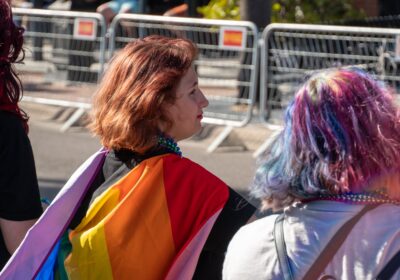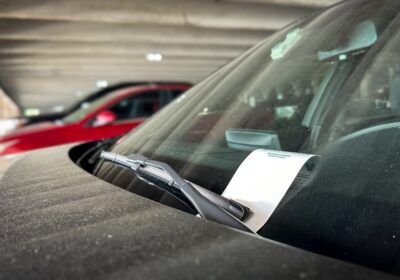SG candidates prepare budgets for election
With student body president and vice president elections kicking off next week, reaching out to voters is a critical part of this election cycle, no matter what the cost.
Beginning this year, the Election Rules Commission (ERC) voted to get rid of a $10,000 cap for candidates to use during campaigning. The ERC chose to remove the limit to prevent candidates from skewing the numbers in their budgets.
Matthew Diaz, a senior majoring in philosophy and political science, whose expenses so far total $3,688.49, has spent $2,704.43 on shirts. He also spent $556.82 on campaign sunglasses to give out, $167.71 on fliers and business cards, $100.86 on glow sticks and bought the domain TBM2011.com for $7.67.
“That is the cost as up to date as possible,” Diaz said. “But our donations came from Boardwalk … and my respective student organization affiliations.”
Diaz did not want to reveal the student organizations that donated to his campaign. However, he said he visited the Boardwalk at Morris Bridge apartments and arranged a sponsorship. Diaz’s flyers all have an ad for the apartment complex on the backside.
Diaz said the $188.49 spent over his budget came out of pocket.
Diaz, a former Activity & Service (A&S) Recommendation Committee chairman who helped allocate $10 million of A&S fees to things like the Marshall Student Center, Campus Recreation and Homecoming, said he did not recall what his campaign budget was last year, or if it was close to the recently removed cap.
“Furthermore, I do not recall what my budget was last year, however, as you can see,” he said. “Our tactics to date are flyers, T-shirts, Facebook and individual interaction.”
Candidate Jason Funes, a senior majoring in biomedical sciences and philosophy, said he feels that candidates spend too much money campaigning. He said that even if the funds are donated, the amount is still overwhelming.
“I think it is completely irresponsible and absurd to actually spend $10,000 in just the two to three weeks that we are allowed to campaign, even if the funds do come from donations,” Funes said.
Funes said his campaign focuses on remaining thrifty. He said services like photography, web design and T-shirt printing were provided to him
“I spent money on T-shirts, my buddy just ended up printing them for $220,” he said.
Funes also said that he paid $90 for a professional photography session and is still waiting to make agreements with four or five potential sponsors. Funes will soon be sponsored by Hoveround, printing their logo on shirts and fliers.
So far, without any sponsorship money, he’s spent less than $400.
“So far we are well below the $1,000 dollar mark on expenses and have spent as least as possible out of pocket,” he said.
Jason Prado, a junior majoring in business management, said he has also kept his spending under $1,000 before the week of elections.
“I would say we’ve spent less than $850, probably around $800,” Prado said. “I think it’s gotten to a point that, because of the size of the campus, it’s hard to reach out to every student.”
Prado said $500 was donated from Prado Enterprises and the remaining $300 to $350 were out of pocket. His campaign budget funded 150 T-shirts, A-frames commonly used to advertise Rush Week, chalk and the cost of a domain name for his campaign’s website. Out of all those costs, Prado said shirts were the most important.
“I think shirts are important for the people who help out with the campaign,” Prado said. “I think it’s important to give those people some things. It’s also important to have shirts around because I consider them walking billboards.”
Prado said the shirts were given to him for free by Prado Enterprises, and that the company’s logo is on the back of the shirts.
“My uncle has been very supportive of everything I’ve done,” Prado said. “He’s also a USF alumnus.”
Melissa Leddy, a junior majoring in marketing and finance, said she will cover her budget costs out of pocket without any donations or sponsorship.
“Basically, for our budget we hope to keep (the budget cap) around $1,000,” she said. “We hope to be a low-budget campaign whose ideas are more effective than handing out T-shirts in hopes of persuading voters.”
Her brother and campaign manager Chris Leddy, a senior majoring in political science and history, said Melissa has spent approximately $600 so far.
“That includes things like chalk, sunglasses, things such as that,” Chris said. “I know she wants to stay around $1,000 just because sometimes there are miscellaneous expenses and you never know what to expect.”
Chris also said Melissa was not looking for sponsorship.
“Thus far I don’t think she sought out sponsorship besides family and friends,” Chris said. “It’s just really her campaign being funded so far by herself, (running mate) Christina (McLaughlin) and their families.”
Melissa said getting students aware of her ticket’s platform is “the most valuable aspect of (the) campaign and we cannot put a price on that.”
Melissa’s budget funds are her own, but she said that’s what’s best for her campaign.
“The money is out of pocket. In the time that we have allotted we feel that our time would be better utilized campaigning as opposed to soliciting for donations,” she said.
With her funding, the campaign will purchase sunglasses, flyers, candy and other small campaign souvenirs to hand out to students. Her ticket prefers giving out inexpensive items to voters.
“We feel that our platform is more important than a culture of materialism that is used to buy votes,” Melissa said.
The next and final debate between tickets will be held on Wednesday at 7 p.m. in the Marshall Student Center Oval Theater.






